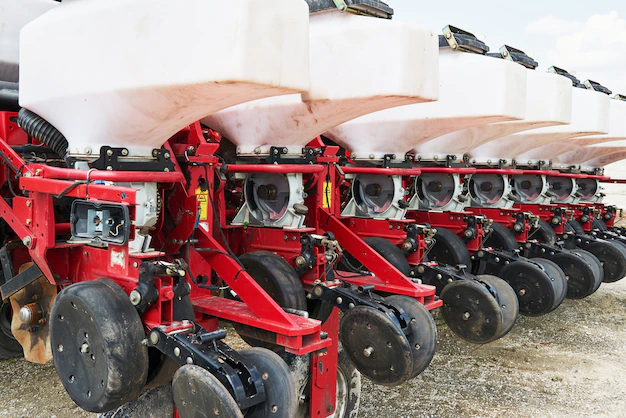Being a Farm Equipment Mechanic is a specialized job that involves repairing and maintaining agricultural machinery. Here are ten important things you should know about a Farm Equipment Mechanic job:
- Job Responsibilities: Farm Equipment Mechanics are responsible for diagnosing, repairing, and maintaining a wide range of agricultural equipment, including tractors, harvesters, sprayers, and other farm machinery. They may also perform routine maintenance tasks such as oil changes, filter replacements, and inspections.
- Technical Skills: This job requires a strong understanding of mechanical systems, engines, hydraulics, and electrical components. Farm Equipment Mechanics should be skilled in troubleshooting and problem-solving to identify and fix issues efficiently.
- Knowledge of Agricultural Machinery: A Farm Equipment Mechanic needs to have a good understanding of different types of farm machinery, their components, and their specific maintenance requirements. This includes familiarity with both older, mechanical equipment and newer, computerized machinery.
- Equipment Diagnosis: Farm Equipment Mechanics must be proficient in diagnosing equipment problems by using diagnostic tools, reading technical manuals, and conducting tests. They need to accurately identify the root cause of issues and determine the appropriate repairs.
- Repairs and Replacements: Once the problem is diagnosed, Farm Equipment Mechanics should be skilled in making repairs or replacements to faulty components. This may involve disassembling machinery, ordering replacement parts, and reassembling equipment after repairs.
- Preventive Maintenance: In addition to repairs, Farm Equipment Mechanics play a crucial role in performing preventive maintenance tasks. They schedule and carry out regular inspections, lubrications, and adjustments to ensure equipment operates smoothly and minimize breakdowns during critical farming seasons.
- Safety Considerations: Safety is paramount in this job. Farm Equipment Mechanics should be knowledgeable about safety protocols when working with heavy machinery, sharp tools, and hazardous materials. They should also be aware of potential risks and take necessary precautions to protect themselves and others.
- Physical Demands: The role of a Farm Equipment Mechanic can be physically demanding. It often involves lifting heavy equipment parts, working in confined spaces, and standing for long periods. Physical fitness and stamina are important for carrying out the job effectively.
- Communication Skills: Farm Equipment Mechanics interact with farmers, equipment owners, and suppliers. They need to effectively communicate with customers to understand equipment issues, explain repair processes, and provide maintenance recommendations. Strong communication skills are essential for building trust and maintaining good customer relations.
- Continuous Learning: The agricultural industry is constantly evolving with new technologies and advancements in farm equipment. Farm Equipment Mechanics should be committed to continuous learning and staying updated with the latest developments in the field. This may involve attending training programs, workshops, or acquiring certifications to enhance their knowledge and skills.
A Farm Equipment Mechanic job requires a combination of technical expertise, problem-solving abilities, and a strong understanding of agricultural machinery. It is a critical role in ensuring the smooth operation and productivity of farming equipment.
Join 'Farmers Mag' WhatsApp Channel
Get the latest Farming news and tips delivered straight to your WhatsApp
CLICK HERE TO JOIN






